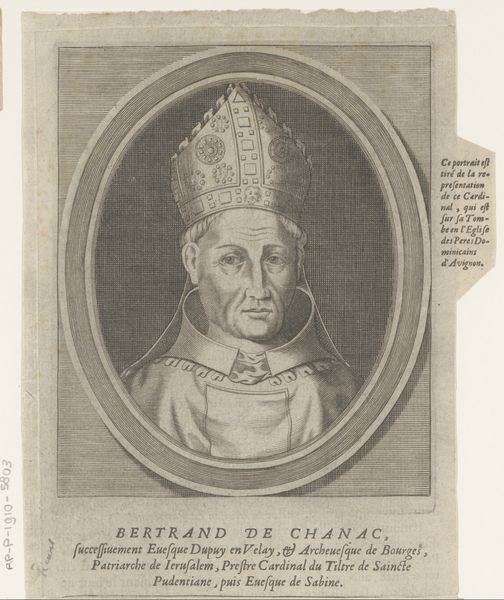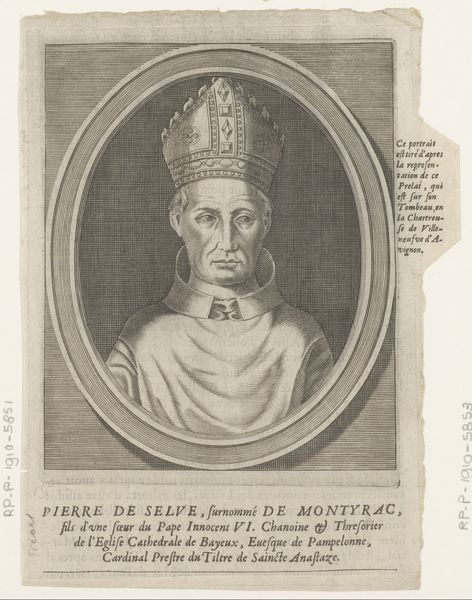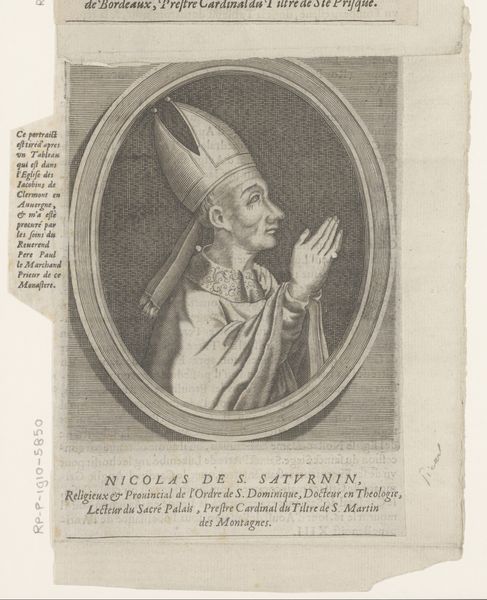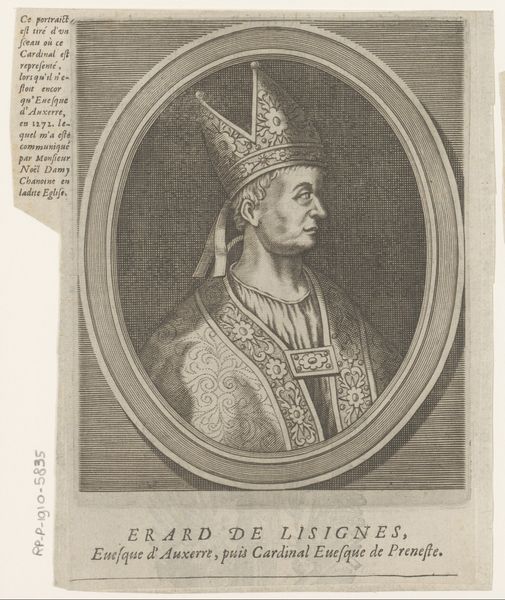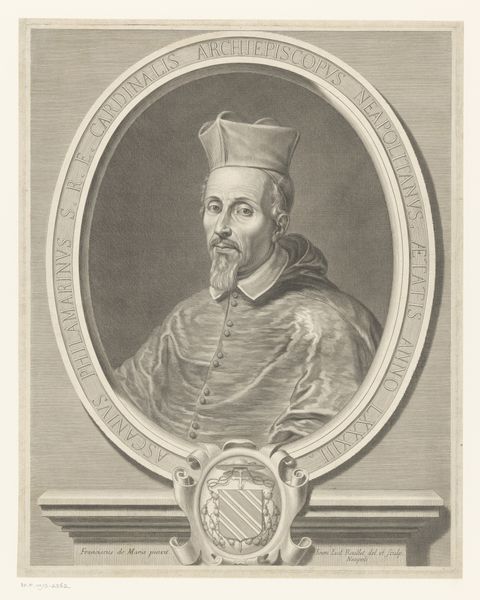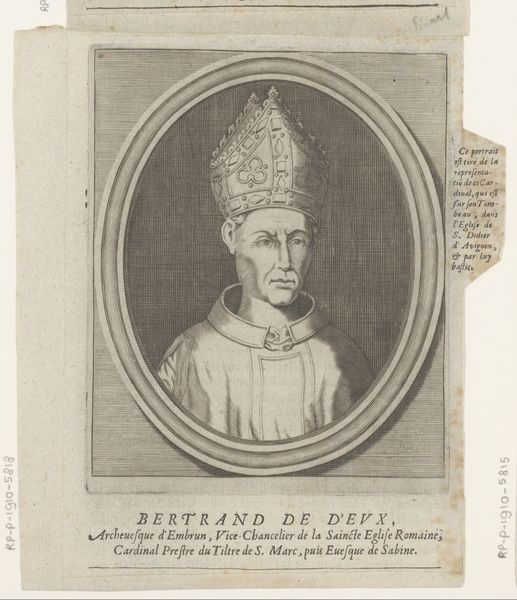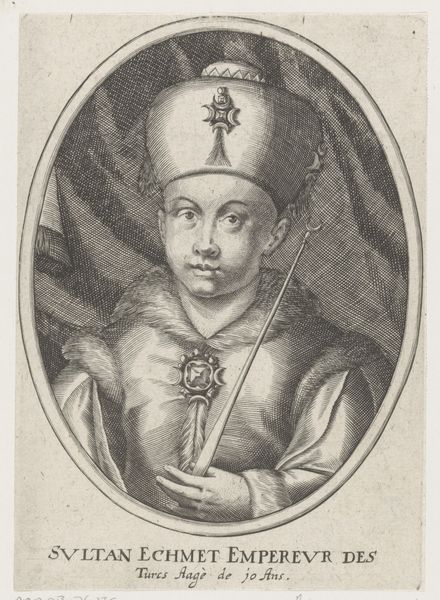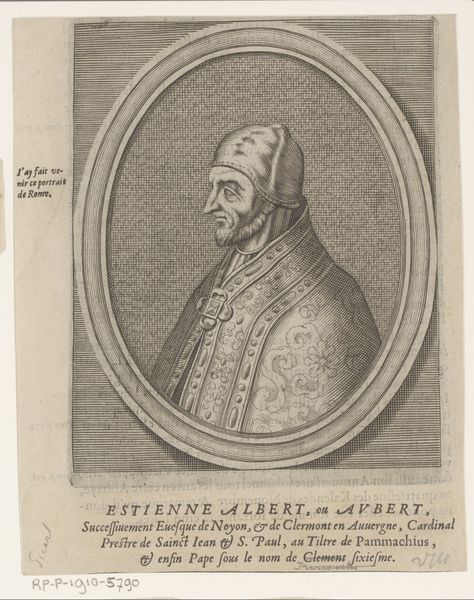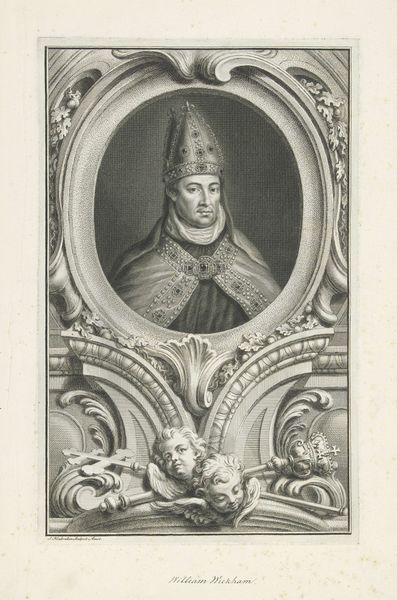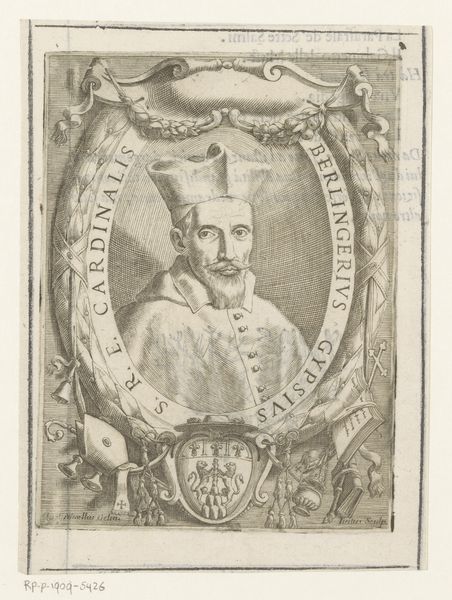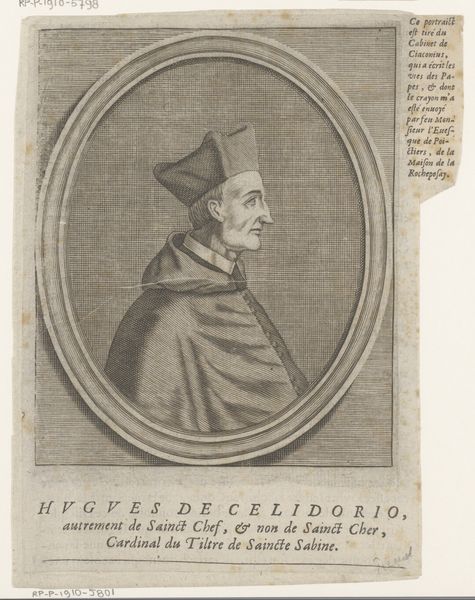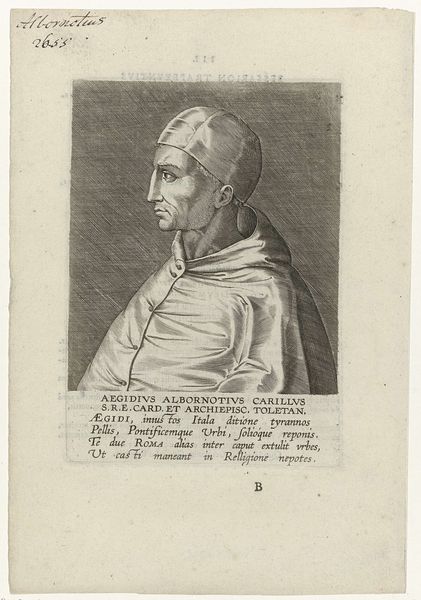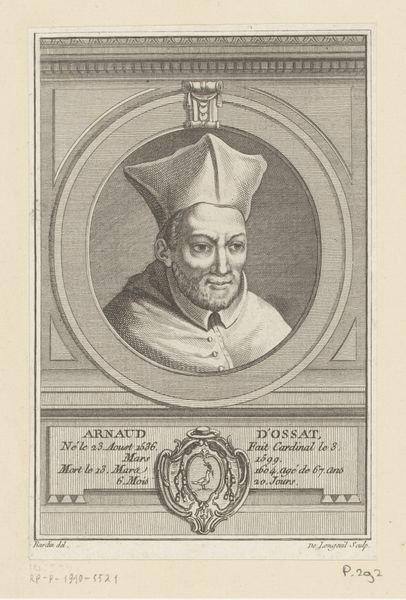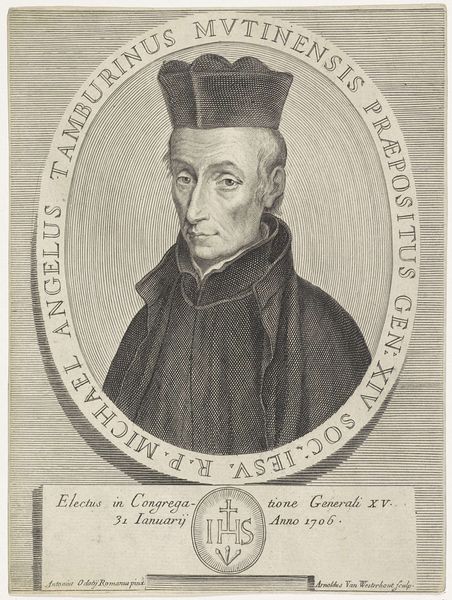
print, engraving
#
portrait
#
baroque
# print
#
old engraving style
#
history-painting
#
engraving
Dimensions: height 175 mm, width 141 mm
Copyright: Rijks Museum: Open Domain
This portrait of Faydit d'Aigrefeuille was made by Etienne Picart, using an engraving technique. This means the image was incised into a flat copper plate, and then printed. It’s not unlike the process used to make money, and in a way, it was. Prints like this circulated widely in 17th-century Europe, helping to solidify the status of the elite – and of artists like Picart. The fine parallel lines of the engraving give the image a crisp, almost photographic quality, even though photography hadn't yet been invented. Look closely, and you can see how the varying depths and densities of the lines create subtle gradations of tone and texture, defining the cardinal's features and the folds of his robes. The printmaking process relies on skilled labor and specialized tools; consider the number of impressions that could be pulled from a single plate, disseminating the image far and wide. In this way, printmaking democratizes image production, while also reinforcing the social hierarchies it depicts. It’s a fascinating tension.
Comments
No comments
Be the first to comment and join the conversation on the ultimate creative platform.
